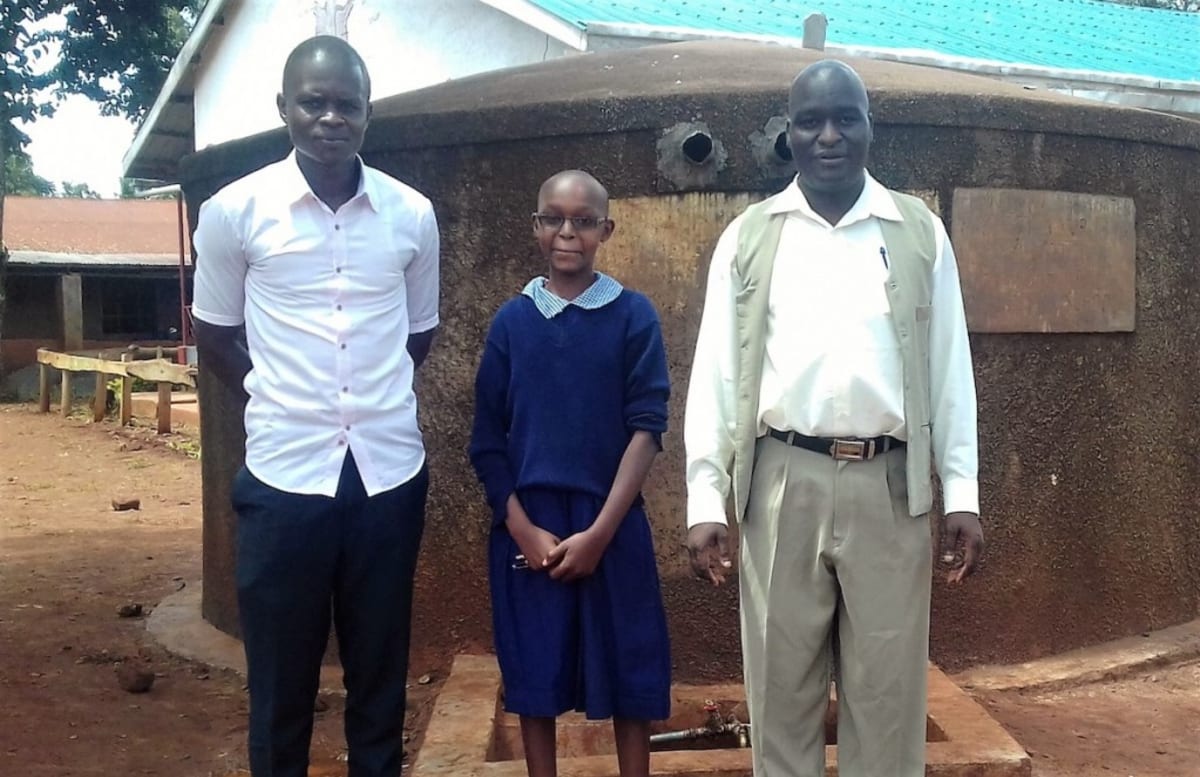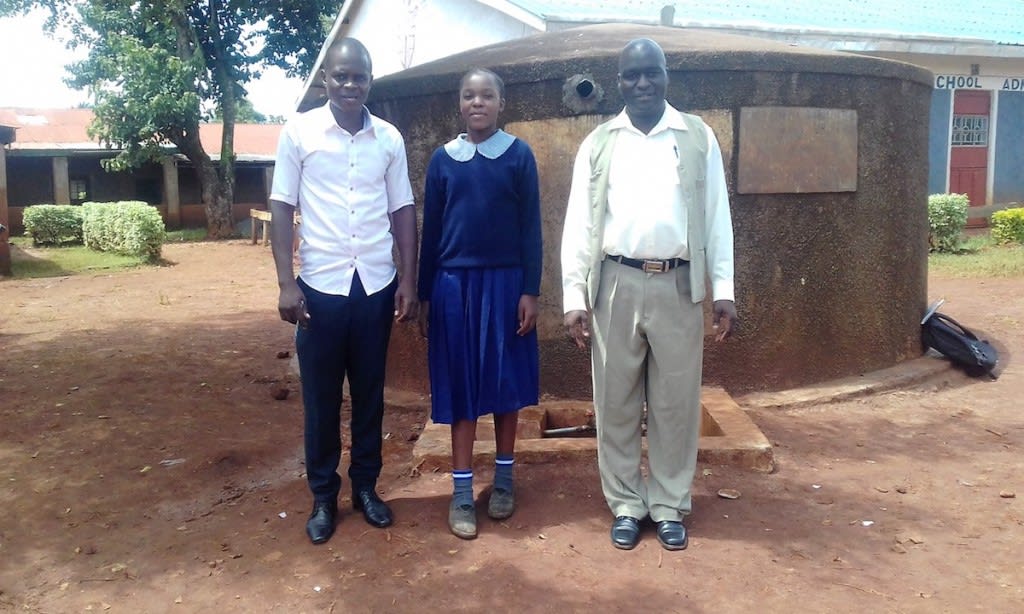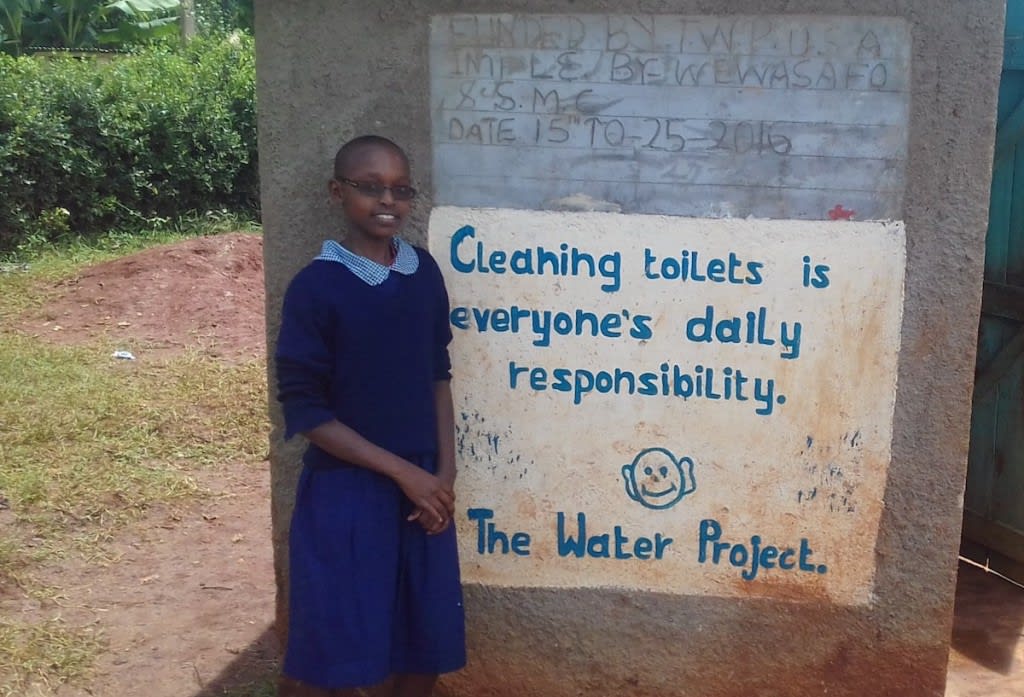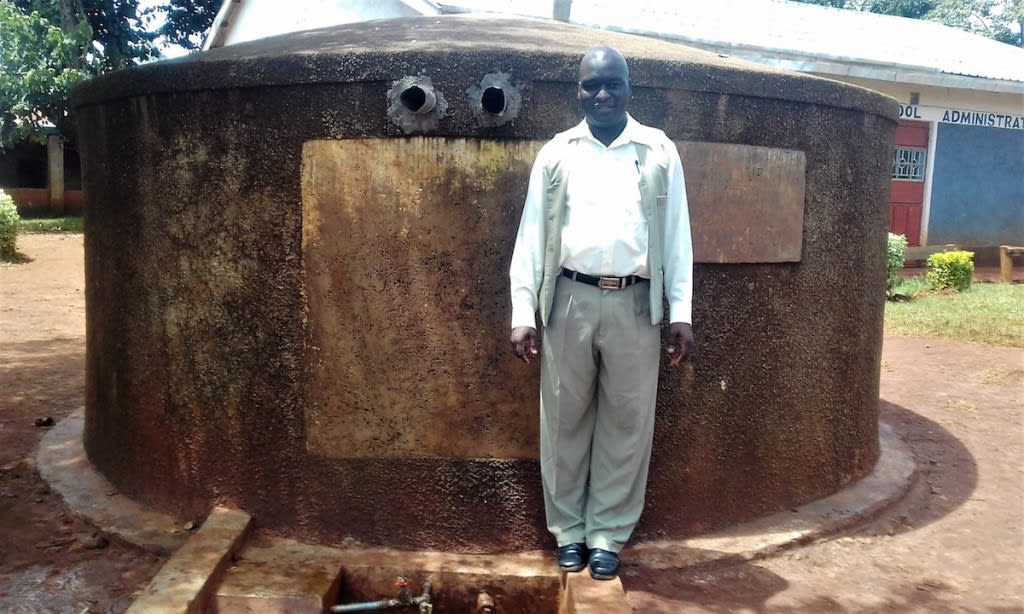This project is a part of our shared program with Western Water And Sanitation Forum (WEWASAFO). Our team is pleased to directly share the below report (edited for clarity, as needed).
Background Information
Mukuli Primary School is in Mukuli Village of Kenya's Vihiga County. There are 636 regular pupils enrolled out of which 277 are boys and 359 are girls. Besides the 636 students, there is an early education department which teaches 130 young children. The school is also offering vocational training for 13 older girls. Mukuli Primary has a great deal of pupils with special needs: 63 are visually impaired, and 13 are mentally handicapped.
(Editor’s Note: While this many people may have access on any given day, realistically a single water source can only support a population of 350-500 people. This site would make a great location for a second project. To learn more, click here.)
The Current Source
The school had a borehole within their compound that was condemned by the Vihiga County Deparment of Government Health. Consequently, the condemned borehole should only provide water for cleaning classrooms. However, when pupils are thirsty that often sneak a drink of this contaminated water. Staff must send students to fetch water from a spring which is two kilometers away from the school. Other students are required to carry water from home in jerrycans. Constant water shortage has and is predisposing the school community to communicable diseases such as malaria, due to mosquito bites as pupils fetch water from the distant spring, and typhoid and other diarrheal diseases.
Sanitation Situation
All of the above groups share the same sanitation facilities. The school has only six simple pit latrines for boys, and six VIP latrines for girls. The entire institution has a total of 30 teachers out of which 9 are male and 21 are female. The teachers have a single-pit two-door VIP latrine with one door serving males and the other serving females.
Most female students are faced with daily rape attempts on their way to fetch water from the spring. Some pregnancy cases were strongly suspected to have resulted from these girls going to the spring at odd hours. Much class time is being wasted because of pupils fetching water from such a far location. This has interfered with proper syllabus coverage, and most pupils do not perform well in class. Moreover, students risk of road accidents as they cross the busy Kisumu-Kakamega Highway in search of water.
Mukuli Primary School is highly recommended to benefit from a water, sanitation and hygiene project. This will give students back much of their needed time and energy for academic work. Besides, waterborne diseases such as typhoid and malaria commonly reported among the school population will greatly decrease if this project is implemented and training is offered to the school community.
Plans are to build a rainwater catchment tank, new VIP latrines, and to install hand-washing stations. Students, staff, and community members have already begun to contribute the necessary materials and effort to make this project a success. As you can see from the photos below, the school is responsible for digging a pit for the new VIP latrines. A new rainwater catchment tank will give students a permanent source of safe water on campus, new latrines will improve the sanitation situation, and hand-washing stations will provide greater opportunity for healthy living.
Project Results
Construction for a rainwater catchment tank, two triple-door VIP latrines, and two hand-washing stations is complete. The two three-door VIP latrines have already improved sanitation conditions: "Before this project we were in shortage of 12 and eight latrine doors for girls and boys respectively but this has been lowered to six and two latrine doors for each gender respectively,” the health and sanitation teacher remarked. This brings the school much closer to meeting the standards set by the World Health Organization of having one door per 25 girls and 30 boys respectively.
School health and hygiene trainings were also completed successfully. The fruits of school health and hygiene training are already evident: The CTC school health club is up and running, headed by a WaSH president supported by various advocates for health, water, hygiene and sanitation, all of whom are pupils. "We enjoy great support from the school administration," commented the WaSH president, "our fellow pupils have grasped the narratives behind hand-washing and using clean water as a hand-washing agent, personal and environmental hygiene. Our school compound and classrooms are indeed clean."
The catchment tank is now in use, but only minimally; there have been few rains since its completion. "Once it rains, the water tank is projected to help our pupils to access safe, adequate and clean water for drinking, cooking and even cleaning purposes within the school compound," commented the headmistress. The water tank will deter pupils from fetching water from the condemned borehole in the school. "We have registered an upsurge in the number of pupils’ population since the commencement of these projects in this school," said the Director of Studies. "It is true that the confidence of our pupils have soared and we look forward to recording higher performances due to much time created by having water within the compound."
Thank You for your generosity that makes all of this possible!

 Rainwater Catchment
Rainwater Catchment
 Rehabilitation Project
Rehabilitation Project
























